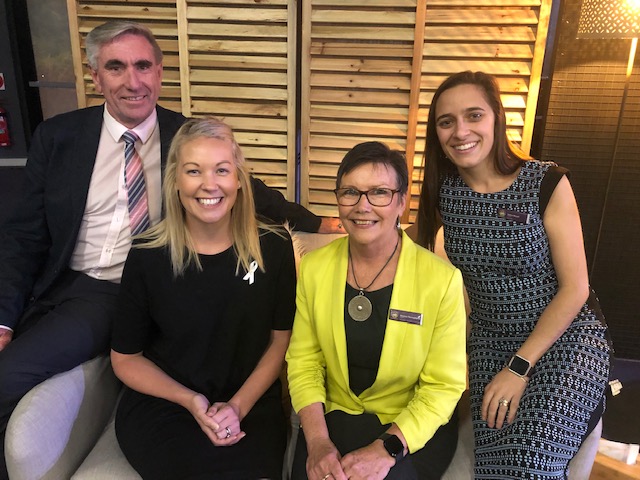Not just ‘cherry-picking’ aspiration: Implementing CPS for students with special needs
Each year AISNSW calls for applications for schools to undertake research over a two-year period, with support from AISNSW, academic mentors and critical friends. After completing a rigorous selection process, St Philip’s Christian College DALE (Dynamic Alternative Learning Environment) was awarded a School Based Research Project in 2017 for their project Not just ‘cherry-picking’ aspiration: Implementing CPS for students with special needs. Connect. Grow. Engage.
St Philip’s Christian College DALE (SPCC DALE) is committed to providing an alternative education environment for a range of students with additional needs, including mental health and behavioural challenges. As these learners disproportionately disengage from learning1, SPCC DALE’s educators are focused on providing evidence-informed learning experiences that re-engage their students and ready them for life beyond school.
Project overview
SPCC DALE’s research project focuses on the impact of implementing the Collaborative and Proactive Solutions model (CPS) across the school’s five campuses. CPS is an empirically supported, non-adversarial, trauma-informed model of care developed by Dr Ross Greene, which has been used in clinical and school settings around the world.
The research team aims to build CPS skills in its teaching staff to improve learner-educator relationships, enabling better support for students and helping them re-engage with learning. SPCC DALE aims to add to the evidence base of CPS’s effectiveness within an Australian school context and provide a rationale for its implementation across a range of school types.
The research team is taking a two-stage mixed methods approach. A psychometric tool to capture student motivation and engagement is being used, along with observational data to support and evaluate staff training and application of the CPS model.
Research team
SPCC DALE’s research team is led by Hayley Adcock, Head of Mental Health and Wellbeing of DALE and DALE Young Parents. Members of the research team are drawn from SPCC DALE’s executive and teaching staff. Dr Nikki Brunker from the University of Sydney is the project’s academic mentor, while CPS experts Dr Ross Greene and Cynthia Graton act as critical friends.

Progress to date
The first year of the project has focused on reviewing and strengthening the research design. Staff training, data gathering, and initial analysis of the impact of the CPS model on the student-educator relationship has also been undertaken. During this process SPCC DALE’s research team engaged with a number of international experts.
The team selected Dr Andrew Martin’s Motivation and Engagement Scale to collect student data throughout the project. They worked with Dr Martin to customise the measure to best reflect their context and student population. Dr Ross Greene, the creator of the CPS model, advised the team on the most effective approach to staff training based on his research and experience. A ‘train the trainer’ model whereby a small group of CPS champions received intensive training to ensure proficiency was adopted, and proved beneficial. Additional qualitative data was gathered to capture teacher voice. These data provide a depth of understanding of educators’ experience of adopting the model, which is valuable information for the team as they continue to scale up.
Initial findings from the first year have shown promising results. Positive shifts in teacher perspectives of student behaviour have occurred which have resulted in improved educator-learner relationships. Student engagement in learning also appears to be increasing. CPS champions have also made notable progress in supporting their educators to adopt the model, and to change mindsets across the five campuses.
Where to next
During 2020, the focus for educators at the school will be to embed CPS in their practice. This will include training for new staff, and ongoing mentoring and support for those trained during the first year of the project. Data collection and analysis will continue.
Based on results to date, the research team at SPCC DALE anticipate seeing tangible improvements in student-educator relationships, student engagement, and educational and wellbeing outcomes.
Contact details
- Project lead: Hayley Adcock
- Contact number: 02 4960 6600
- Email: [email protected]
 @SPCCDALE_CPS
@SPCCDALE_CPS
1 Callingham, M. (2013). Democratic youth participation: A strength-based approach to youth investigating educational engagement. Youth Studies Australia, 32, 48-56.